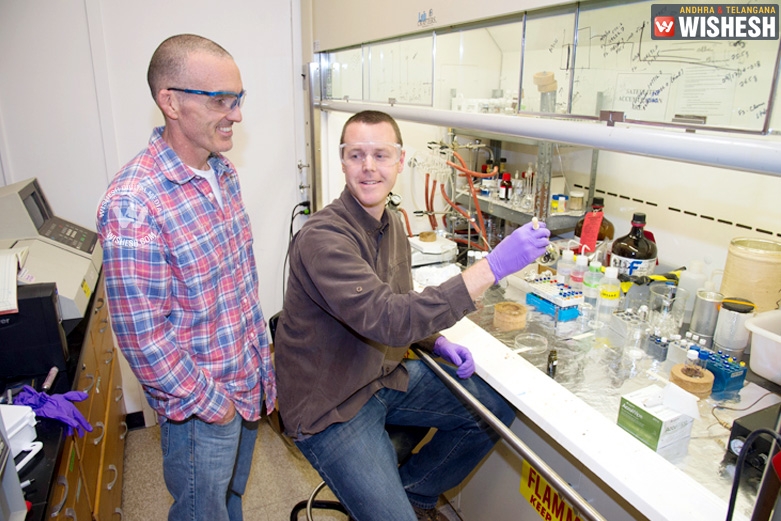
Algae commercially grown to make fish food holds the promise as a source for both biodiesel and jet fuel, according to a new study. Researchers led by Greg O'Neil of Western Washington University and Chris Reddy of Woods Hole Oceanographic Institution exploited an unusual and untapped class of chemical compounds in the algae to synthesize two different fuel products, in parallel, from a single algae.
"It's far from a cost-competitive product at this stage, but it's an interesting new strategy for making renewable fuel from algae," said O'Neil, the study's lead author. An alga contains fatty acids that can be converted into fatty acid methyl esters, the molecules in biodiesel.
O'Neil, Reddy and colleagues targeted a specific algal species called Isochrysis – dismissed, because growers demonstrated that they can produce it in large batches to make fish food. It is among only a handful of algal species around the globe that produce fats called alkenones. These compounds are composed of long chains with 37 to 39 carbon atoms, which the researchers believed held potential as a fuel source.
Oil is a dark, sludgy solid at room temperature. The sludge is a result of the alkenones - precisely what makes the algae a unique source of two distinct fuels. The researchers devised a method to separate the FAMEs and alkenones in order to achieve a free-flowing fuel.
By Premji















